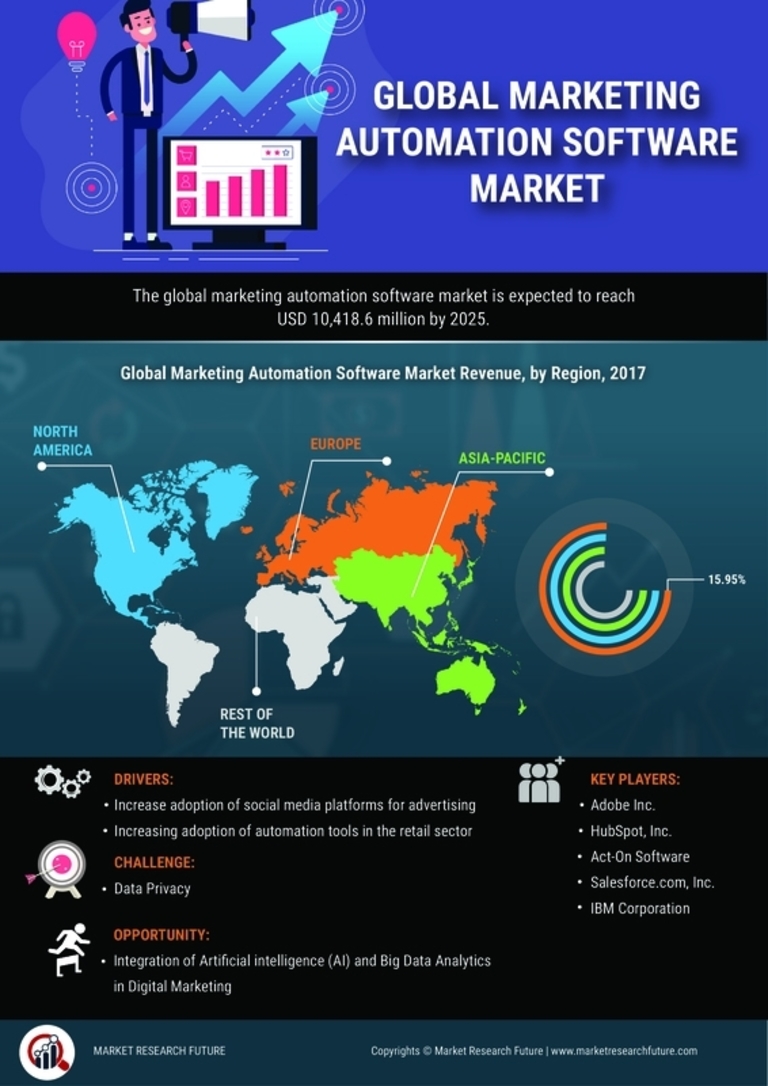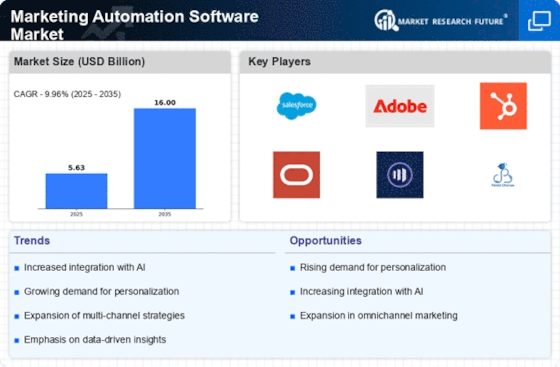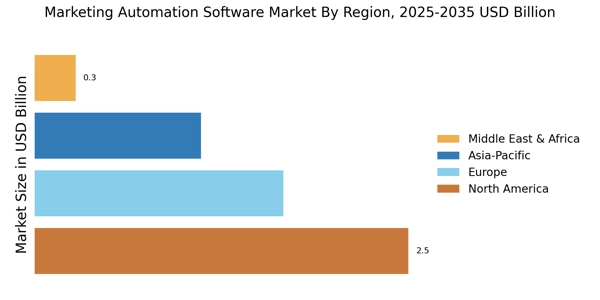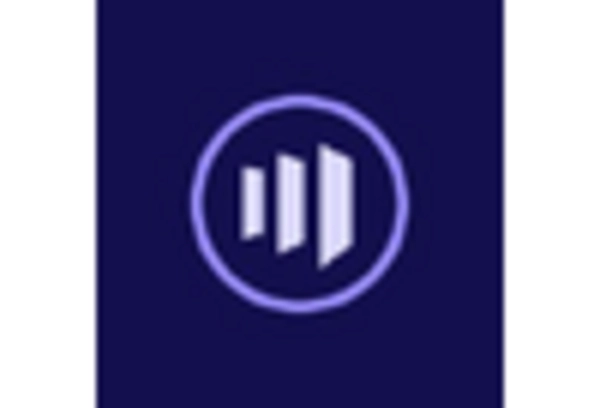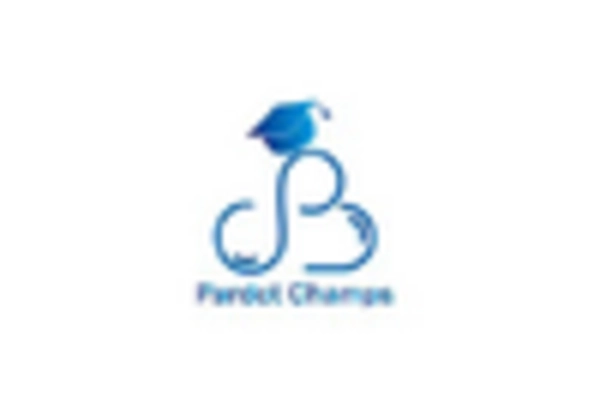Marketing Automation Software Market Summary
As per Market Research Future analysis, the Marketing Automation Software Market was estimated at 5.63 USD Billion in 2024. The Marketing Automation Software industry is projected to grow from 6.191 USD Billion in 2025 to 16.0 USD Billion by 2035, exhibiting a compound annual growth rate (CAGR) of 9.96% during the forecast period 2025 - 2035
Key Market Trends & Highlights
The Marketing Automation Software Market is experiencing robust growth driven by technological advancements and evolving consumer expectations.
- The integration of AI and machine learning is transforming marketing strategies across various sectors.
- North America remains the largest market, while the Asia-Pacific region is emerging as the fastest-growing area for marketing automation solutions.
- Email marketing continues to dominate as the largest segment, whereas social media marketing is rapidly gaining traction as the fastest-growing segment.
- The increased demand for personalization and the expansion of digital marketing channels are key drivers propelling market growth.
Market Size & Forecast
| 2024 Market Size | 5.63 (USD Billion) |
| 2035 Market Size | 16.0 (USD Billion) |
| CAGR (2025 - 2035) | 9.96% |
Major Players
Salesforce (US), Adobe (US), HubSpot (US), Oracle (US), Marketo (US), Pardot (US), ActiveCampaign (US), Mailchimp (US), Zoho (IN), GetResponse (PL)
